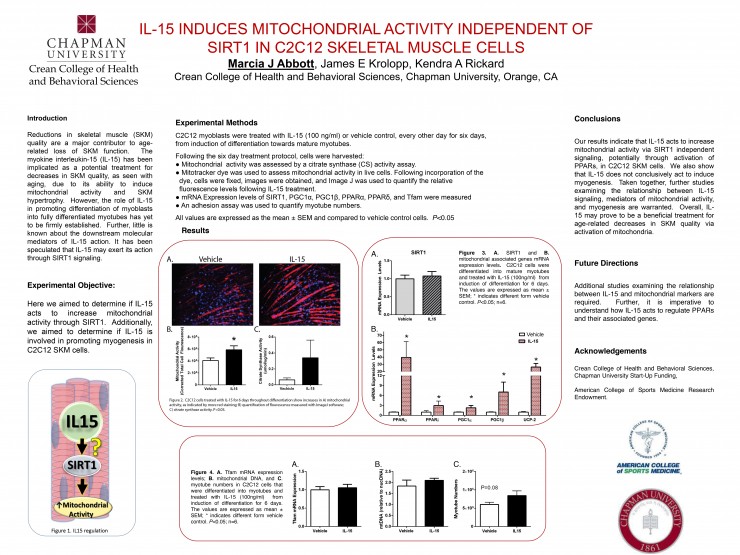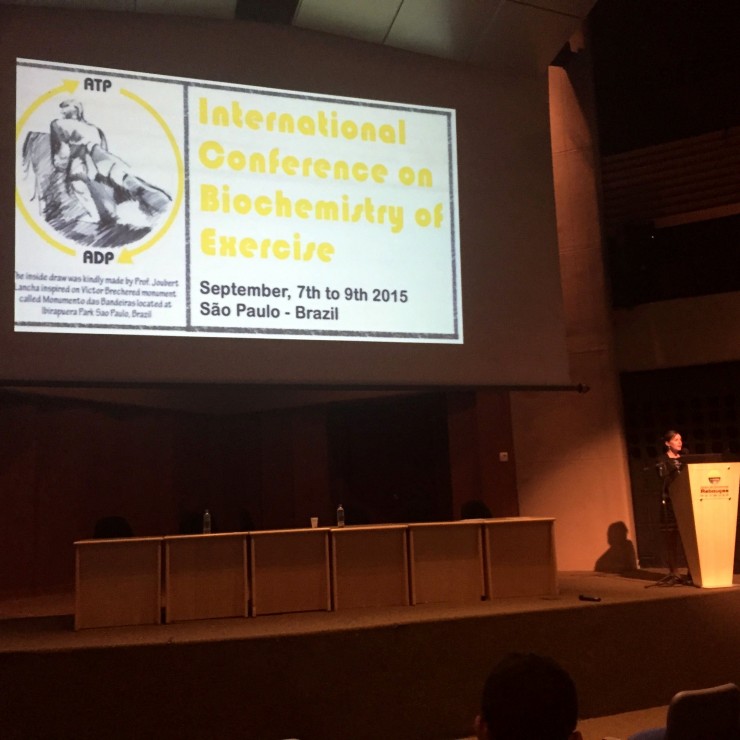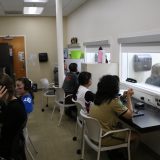
From Minnesota to Brazil: Dr. Marcia Abbott’s Conference Adventures Dr. Abbott's research in metabolism has led to presentations in São Paulo and conferences in Rochester.
November 19, 2015
There aren’t many similarities between São Paulo, Brazil and Rochester, Minnesota. A quick Google search will reveal they both have McDonalds, both have Starbucks, and neither of them are the capital of their respective countries, but beyond that there’s not much to work with. But for Marcia Abbott, PhD, an Assistant Professor in Crean College of Health and Behavioral Sciences, the similarities between São Paulo and Rochester were that they both had airports and both had people that wanted to hear about her research.
Back in September, Dr. Abbott made the trip to Brazil to give an oral presentation regarding her research on molecular regulators of skeletal muscle metabolism. The International Biochemistry of Exercise is a conference that takes place every three years across the globe, from places like Canada to New Zealand to Sweden. For the second time, Dr. Abbott made the trip to attend this international conference.
“The talk went really, really well. I felt that I got some thoughtful questions and was able to create a meaningful dialogue. I’d never been to Brazil before. We were in São Paulo for 6 days and Rio de Janeiro for 5 days.”
Only 15 of roughly 100 total submitted abstracts were selected for oral presentation, and it’s remarkable to be selected to speak. The presentation was to an audience of approximately 500 people and included a Q&A with Dr. Abbott at the end of it, a highly prestigious honor. Most conferences regarding exercise, biochemistry and metabolism tend to take place state side, so any time one is hosted out of the U.S. it’s a big deal.
 Over a month later, Dr. Abbott continued to Rochester, MN to the Mayo Clinic for a symposium on a more specific area of study, metabolomics. An emerging field of research and focus, metabolomics takes a good look at a set of metabolites present within a particular organ, essentially allowing scientists to get an instant snapshot of the array of biochemical molecules on a cellular level. This kind of research can let people like Dr. Abbott obtain new information regarding specific biochemical pathways that may be targets for the treatment of obesity, for instance how fat is metabolized within the body on a cellular level.
Over a month later, Dr. Abbott continued to Rochester, MN to the Mayo Clinic for a symposium on a more specific area of study, metabolomics. An emerging field of research and focus, metabolomics takes a good look at a set of metabolites present within a particular organ, essentially allowing scientists to get an instant snapshot of the array of biochemical molecules on a cellular level. This kind of research can let people like Dr. Abbott obtain new information regarding specific biochemical pathways that may be targets for the treatment of obesity, for instance how fat is metabolized within the body on a cellular level.
“The Mayo Clinic has been granted federal funds and one of the things that they have funding for is a metabolomics core facility. Which means people from all over the country can submit samples and they’ll examine those samples for you so you can collaborate,” says Dr. Abbott. “Part of their funding is to have these symposiums and to bring together experts in this field, which is a new field, that a lot of people don’t know a great deal about, myself included. So the point of the trip is to really learn how metabolomics can uncover unique compounds that can regulate metabolism, either for the treatment of diabetes, or obesity, or any kind of metabolic disorder. It’s a newer and exciting field of research.”
 The symposium, which took place October 25th through the 27th, gave overviews of carbon based metabolomics as well as metabolomics as it relates to translational COPD research, among other topics. Dr. Abbott presented similar data from Brazil in Minnesota, though as she puts it, ultimately the Mayo Clinic trip was less of a conference and more of a collaborative workshop.
The symposium, which took place October 25th through the 27th, gave overviews of carbon based metabolomics as well as metabolomics as it relates to translational COPD research, among other topics. Dr. Abbott presented similar data from Brazil in Minnesota, though as she puts it, ultimately the Mayo Clinic trip was less of a conference and more of a collaborative workshop.
You can check out Dr. Abbott’s presentation poster above and find out more about her and her research here.


